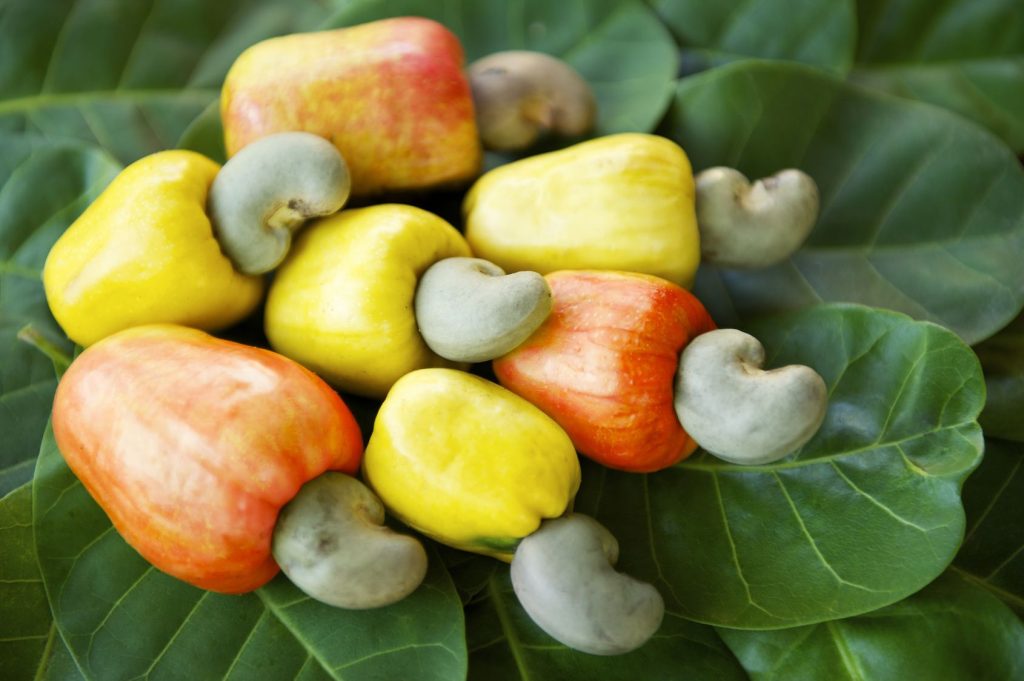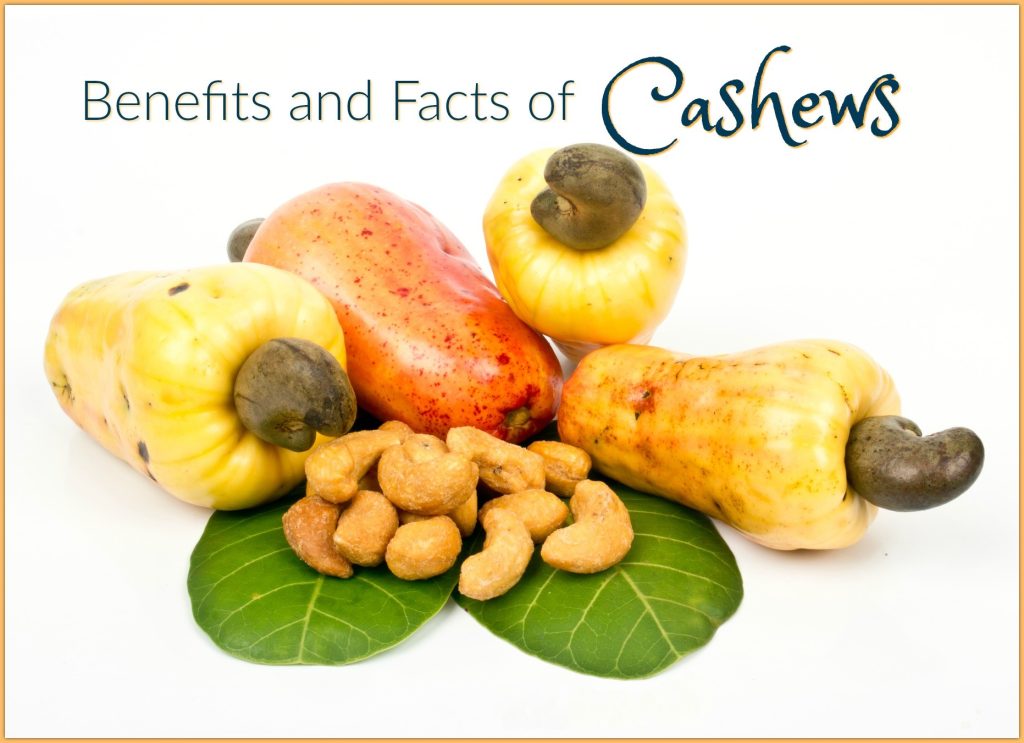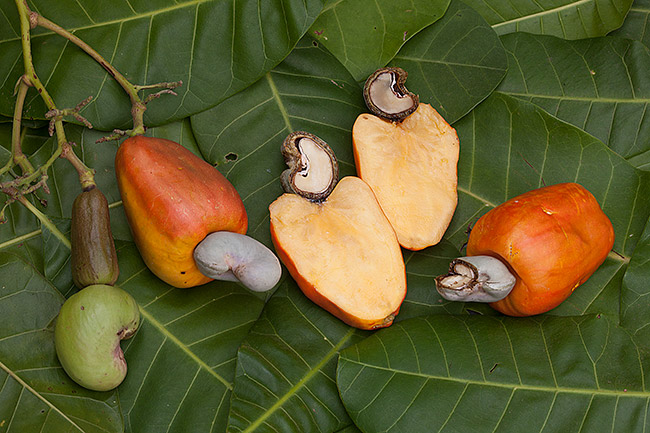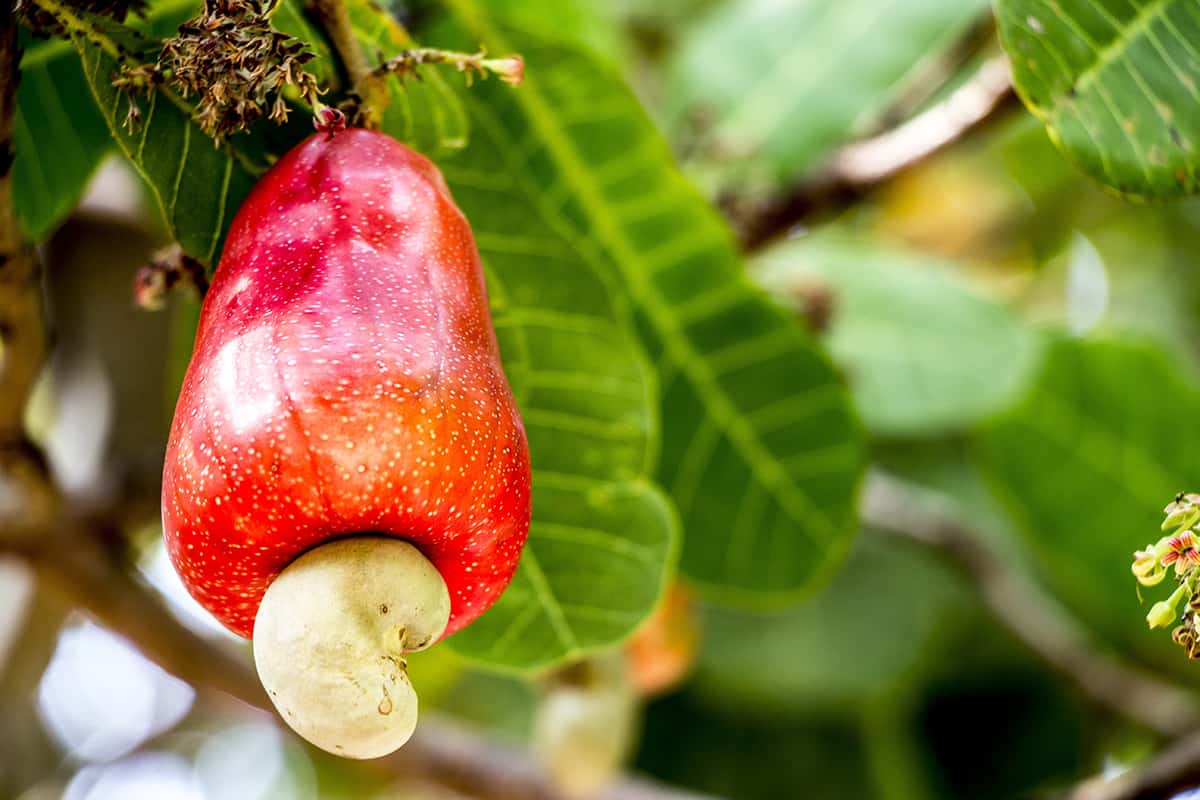The nutritional advantages of cashew fruit are numerous; however, they are sometimes eclipsed by those of its more well-known counterpart, cashew nuts. The fruit itself is still rather unknown, even if the nut is well-known and eaten. You will, however, be pleasantly surprised when you learn more about its nutritional profile and health benefits. Let’s examine the many benefits that fruit cashew has to offer and how it might improve your health in general.
Overview of Cashew Fruit
The fruit of the cashew tree, which is indigenous to Brazil, is referred to as Anticardium occidental in science. This tropical fruit has a pear-like form, bright yellow to red skin, and a luscious, succulent texture. At the end of the cashew apple, or the swelling stem of the cashew tree, is where the fruit usually grows.

The composition of nutrition
Fruit Cashew is comparatively unknown, but it has an amazing nutritional profile. It has a lot of important minerals, vitamins, and antioxidants. Fruit Cashew offers a substantial amount of vitamin C, vitamin E, vitamin K, potassium, and dietary fiber in only one serving. In addition, it has health-promoting qualities due to the presence of useful components like polyphenols and carotenoids.
Benefits of Fruit Cashew for Health
Increases Immunity
Vitamin C, a crucial antioxidant with immune-boosting qualities, is abundant in cashew fruit. Frequent fruit and cashew consumption can boost immunity, making it easier for the body to fend off diseases and infections.
Encourages Heart Health
The potassium found in fruit cashew is essential for heart health maintenance. Potassium lowers the risk of cardiovascular disorders like hypertension and stroke by supporting healthy heart function and assisting in blood pressure regulation.
Enhances Eye Well-being
Fruit cashew is a good source of carotenoids and vitamin C, two antioxidants that support eye health. These substances lower the incidence of cataracts and age-related macular degeneration by shielding the eyes from oxidative damage brought on by free radicals.
Facilitates Digestion
A wonderful source of dietary fiber that promotes healthy digestion and wards off constipation is fruit cashew. Fiber gives the stool more volume, which helps to maintain digestive health and encourage regular bowel movements.
Promotes Skin Health
Fruit cashew is a great source of vitamin E, which is well known for its ability to nourish skin. It contributes to the skin’s continued health, radiance, and freshness by shielding it from UV rays and environmental toxins.

Flexibility in Uses for Culinary
Fruit cashew has several health advantages, but it’s also quite adaptable in the kitchen. The fruit can be juiced to produce delectable drinks or eaten fresh as a cool snack. Its tart and sweet flavor gives salads, smoothies, and pastries a deeper flavor. Fruit cashew can also be used to make sauces, preserves, and jams, which give a distinct tropical flavor to a variety of foods.
Possible Adverse Reactions
Although fruit cashew has many health advantages, it must be used in moderation. Cashew fruit allergies can occur in certain people, especially in those who are also sensitive to tree nuts. Additionally, because fruit cashew contains a lot of fiber, consuming it in excess can cause stomach problems.
Read more about: Examining Dried Fruit: A Tasty Adventure
How to Include Fruit Cashew in Your Diet
Fruit cashew is easy and satisfying to include in your diet. You can add it to your favorite recipes or eat it raw as a standalone snack. Fruit cashew is a great way to add taste and nutrients to any cuisine. It can be used for salads, smoothies or even yoghurt or muesli.

Specialized FAQs
Are cashew nuts and cashew fruit the same thing?
The cashew nut is the seed that is inside the fruit, but the fruit cashew is the swollen stem of the cashew tree, even though they both originate from the same tree.
Can you eat raw cashew fruit?
You can eat cashew fruit uncooked, yes. It tastes like a combination of mango and pineapple, sweet and acidic.
Are there any risks to one’s health when eating cashew fruit?
Eating fruit cashew can cause adverse reactions in people who are allergic to tree nuts. Additionally, because of its high fiber content, consuming too much of it may cause intestinal pain.
How are cashew fruits supposed to be kept?
For best freshness and flavor, fruit cashew should be eaten within a few days of ripening and kept at room temperature.
Beyond being eaten raw, are there any other culinary uses for cashew fruit?
Yes, fruit cashew can be used to lend a tropical flair to a variety of dishes and drinks by making juices, jams, preserves, sauces, and even alcoholic beverages.
In finalization
In summary, fruit cashew is a nutrient-dense superfood that is rich in antioxidants, vitamins, and minerals. It has numerous health advantages, including improved skin health, improved digestion, and support for heart health and immunity. Fruit cashew adds taste and nutrition to any diet because of its many culinary applications. So, don’t be afraid to savor this healthy goodness the next time you come across this tropical jewel.








